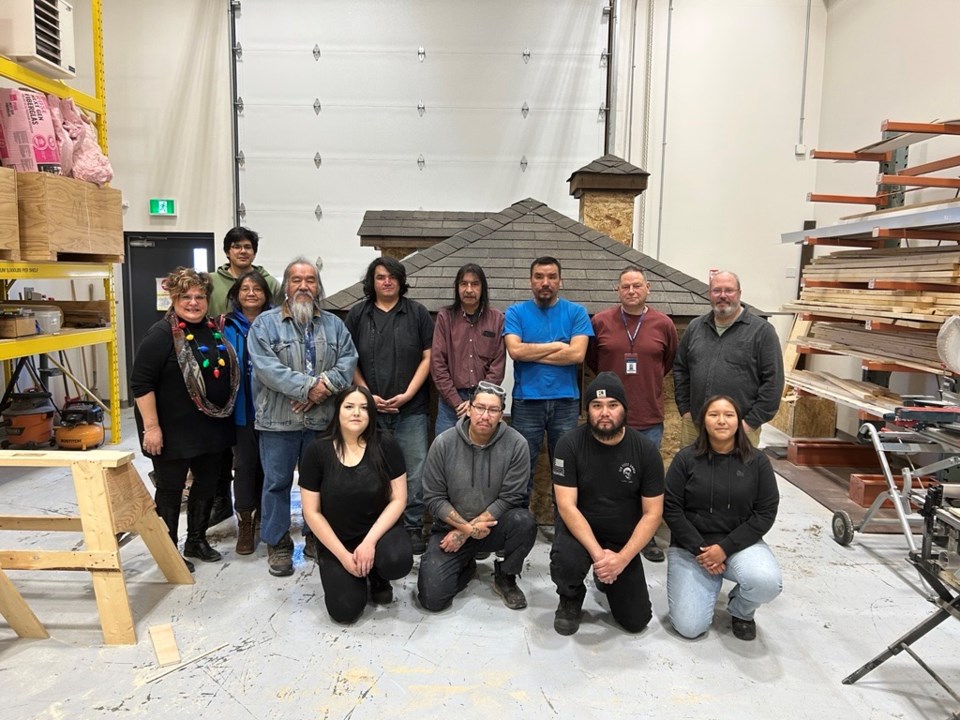DRYDEN — A relatively new carpentry program is designed to teach skills that graduates can take back to their communities, says the manager of a training centre that serves people from six remote northern Ontario First Nations.
The program is a partnership between the Keewaytinook Okimakinak Chiefs Council, the Keewaytinook Centre of Excellence, and Confederation College. The 12-week course graduated its first cohort earlier this month. Keewaytinook Okimakinak provides services such as in education, health, economic development, public works, and more in Deer Lake, Fort Severn, Keewaywin, McDowell Lake, North Spirit Lake and Poplar Hill First Nations.
Andrew Ross, the manager of the Keewaytinook Centre of Excellence — which is a training centre in Dryden now under the umbrella of the Keewaytinook Okimakinak Board of Education — told Newswatch that the partnership is the latest collaboration between the organizations, and came about after they received a provincial grant. The goal, he said, was to increase job opportunities for members of the six First Nations that the chiefs council serves.
“Really to build capacity within the communities, so to give KO community members the opportunity to, not only go through training programs, but also through programs that they could take back to their communities,” he said, adding that could lead to employment and the ability to support their communities.
For Confederation College, these types of collaborations help the school fulfill its role in providing education across the region.
“The college serves an area the size of France, right?” said Nick Iachetta, the college’s associate dean of workforce development. “So, we make sure that not just Thunder Bay core, but we're really focusing on what are the regional needs.”
“We know that there's labour shortages coming up, we know the challenges that happen in Indigenous communities … so we were all over it when they said, ‘you know, what do you think? Can you help?’”
All eight students successfully completed the first iteration of the course, Ross said, which is really encouraging.
“We’re looking to give communities the opportunity to become self-sustainable and build capacity within them,” he said. “So that they're not relying on outside sources for the needs that they have.”
A second cohort started training in January. Ross said the grant from the province that allows the program to run is only for one year, but that they have already applied for a second year of funding.
